EMPATHETIC GLOBAL CITIZENSHIP

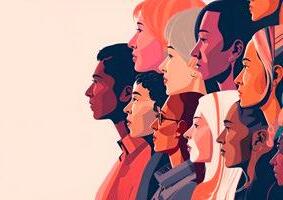







When it comes to equity, diversity, and inclusion, I believe in the old adage: If you can see it, you can be it.
That has been true in my own life. One of my earliest examples was my mother, who had an undergraduate degree in math and a master’s in computer science. She went back to work when I was about 10 years old at the Los Alamos National Laboratory in New Mexico and worked her way up from a technical employee to a group leader and ultimately, Executive Director of the Advanced Computing Laboratory. With that example as my “normal,” I never questioned whether I, too, could go into a technical field. A little friendly competition with my older sister, who was also good at math and science, didn’t hurt my motivation either.
Here at the Eccles School, we live and learn by the slogan Doers Wanted, but we are also working hard to make this a place where doers of all kinds feel welcome. As we create welcoming spaces here, we will invite and enjoy a more diverse student body, something that benefits us all.
In this issue of the Eccles Experience magazine, you’ll learn about some of our alums working hard to create equitable, diverse, and inclusive spaces wherever they are. From educating health providers on LGBTQ+ issues to building business cultures that focus on the good in people, expanding financial access to minority communities and more, the examples within these pages are something we can all aspire to.
And this issue is just the beginning. Equity, diversity, and inclusion is a key strategic priority of the Eccles School – it’s so important in fact, that we are dedicating two issues of this magazine to exploring all the ways we are and can be engaged in this important work. Our spring issue will feature some of the things we are doing internally at the Eccles School to address equity, diversity, and inclusion and to make sure that we are creating a space where every student can thrive. We look forward to sharing more with you soon!
TALK BACK!
WE’RE LISTENING. Katie.Amundsen@Eccles.Utah.edu
Rachel Hayes Dean, David Eccles School of BusinessGive us your thoughts, feedback and suggestions about Eccles Experience.
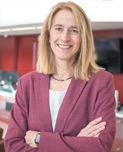

 By Frances Johnson
By Frances Johnson
More than one-third of HR leaders report that equity, diversity, and inclusion are among their top five priorities, which isn’t very surprising when you consider all the benefits diverse companies can experience.
With 75% of employees and job seekers reporting that diversity is important when considering job offers, diverse companies have a much better chance of attracting the workers they want. Racially and ethnically diverse companies also have a 36% higher likelihood of financially outperforming less diverse companies, while companies with gender-diverse executive teams are 21% more likely to outperform on profitability. And companies that welcome diversity are 1.7 times more innovative.
However, according to research conducted by Amelia Stillwell, Assistant Professor of Management at the David Eccles School of Business, diversity on paper isn’t enough for companies to realize these benefits. Without an environment that welcomes diverse perspectives and creates a safe space to voice differing experiences and opinions, businesses and organizations can’t capture the value of diversity in their organization – and they could even be hurting their own organizational success.
Stillwell’s research focuses on voice in the workplace – in other words, how likely people are to voluntarily speak up about everything from a safety issue to an innovative new idea to move the business forward.
“People have to speak up with their new ideas if you are going to use those new ideas,” Stillwell said. “Organizational environments are a big factor in whether employees feel comfortable speaking up and choose to do so.”
Two factors influencing the organizational environment as it relates to voice are the degree of psychological safety employees feel, and whether or not they feel that speaking up about a particular issue – positive or negative – will even make a difference.
“If my suggestions will be ignored, it’s not worth putting myself out there in the first place,” Stillwell said.
And influencing both of these factors is how the environment responds to and embraces diversity. Stillwell’s research showed that microaggressions – small instances of everyday racism or sexism, for example – had a “chilling effect” on team dynamics and productivity.
Everyone responds to microaggressions, Stillwell said, even if they are not the target of the bad behavior.
“All the team members can tell, they get the signal that it’s not a safe place to work,” Stillwell said.
people Stillwell’s research,
That means everyone is less likely to speak up and exercise their voice, even about strictly business-related ideas such as how to collect better customer feedback or how to make a manufacturing process safer, and it’s happening more than most people realize. In Stillwell’s research, 63% of participants reported they had witnessed a racial microaggression at work, and 50% of participants said they had personally experienced a racial microaggression at work. When that happens, Stillwell said, individuals and organizations suffer.
“Teams with civility and respect perform better, they are more ethical, more creative, and have fewer decision-making errors,” Stillwell said. “It points to why these issues really matter. It really is beneficial to create safe and diverse environments.”
“All the team members can tell, they get the signal that it’s not a safe place to work.”
other non-inclusive behavior is behavior they want to see.
“Leaders have to be involved and they have really look to their leaders for cues about what sexist, homophobic, transphobic, or other dam -


Amplifying the voices and experiences of the people and groups most directly impacted by microaggressions is another way leaders can set an example of cultural change, a practice Stillwell calls “leading from behind.” For example, racial minorities know best the barriers they are facing, and allowing them to voice those barriers in a safe environment allows an organization to learn from their experience and take advantage of their specialized knowledge while also fostering a stronger sense of safety and belonging for every employee.
Efforts to overcome and address bias help us personally, Stillwell said, but they also help businesses attract and retain employees and compete in the marketplace.
“Our students who are the future workforce care very deeply about these issues and about being their full selves at work,” Stillwell said. “Diversity can also open all our eyes to new ideas and new ways of thinking.”
Whatever processes or procedures are put in place, empathy has to be the foundation of any cultural change aimed at improving equity, diversity, and inclusion. Employees, customers, and leaders all behave in line with their own experiences, so understanding and respecting those experiences is critical. For example, we might think a manager is ignoring us because they are rude or they don’t like us, but it could be because they are swamped with work or facing a difficult personal problem at home.
“We don’t always have the information about other people’s lives. We need to remember that everyone has a rich mental life, just like us,” Stillwell said.
Finally, there are standard processes organizations can implement to proactively address implicit bias and its consequences. Stillwell recommends removing biasing information such as demographic data or alma mater details from candidate applications so it’s not even available to be used in a biasing way. Networks can also reinforce bias, so purposely reaching outside a personal network to look for job candidates can directly address implicit bias.
“As people, we tend to like people who are like us, and our networks tend to look more like us than the rest of the population, so we should be careful about only hiring people we know,” Stillwell said. “Hiring managers can also use network effects to help diversify their candidate pool by sending opportunity announcements to underrepresented populations. Our Black Cultural Center or Asian Students in Business Association here at the University of Utah, or alumni listservs for Historically Black Colleges and Universities (HBCUs) are examples of networks that leaders and head-hunters can tap if they are trying to diversify their pool of candidates. Make the network effects work for you instead of against you.”
Empathy can also help us move on when we make mistakes – or when someone commits a mistake against us – and can be a catalyst for everyone learning from those mistakes rather than becoming defensive about them.
Here is an example Stillwell herself experienced. While chatting with a co-worker about his weekend plans, he mentioned he had a date. Wanting to be friendly and interested Stillwell said, “Oh, what is she like?” To which her co-worker responded, “Well, he works in the city.”
“I made an assumption in that moment but as soon as he pointed out my mistake, I apologized. He assured me that it was all right and we moved on,” Stillwell said. “Interacting across differences is a hard thing to do. We may not share the same common assumptions about what is appropriate or normal, so it takes more work to establish common ground. Often, we find
“As people, we tend to like people who are like us, and our networks tend to look more like us than the rest of the population, so we should be careful about only hiring people we know.”
ourselves making mistakes – we make assumptions based on our own cultural upbringing and experiences, and sometimes those assumptions can be hurtful to those around us. But empathy for others is really powerful. Apologies are really powerful. Empathy, an apology, and a growth mindset can go a long way in not just repairing the relationship, but making it stronger in the long run.”

Improving equity, diversity, and inclusion is a process that takes time, but there are steps companies and organizations can take right now to get started. Here are some ideas:
Find out how employees feel. Help ensure your equity, diversity, and inclusion roadmap is meeting your employees’ needs and expectations by asking them what factors contribute to a happy workplace and giving them an opportunity to voice their unique perspectives.
Executive Education at the Eccles School has developed the on-demand, online Leading with Equity, Diversity, & Inclusion Certificate program. Premier faculty and community partners give lectures on relevant and important topics – all available 24 hours a day, 7 days a week. You can work toward your goals from anywhere with an internet connection. Executive Education is dedicated to help working professionals learn and grow in their current or future role.
Interested? Scan

Update your employee value proposition. Show your current employees as well as potential job applicants that equity, diversity, and inclusion are part of your core company values.
Establish a mentorship program for underrepresented groups. Research shows that women of color who have mentors are 81% more likely to be satisfied with their career progression, and mentorship programs can also boost the representation of minorities at manager levels.
Use inclusive language. Language is an essential part of creating a welcoming and inclusive company culture. It can be as simple as saying “people” instead of “ladies and gentlemen” or “teammates” rather than “guys.”
Start employee resource groups. Employee resource groups are often formed around a common social identity such as gender, race, or sexual orientation, or a life stage such as parenthood. They are a great way to bring together different perspectives, experiences, and ideas from your employees at all levels.
Becoming the best version of yourself will help you personallly and professionally.
Whenever Sui Lang Panoke has a conversation about equity, diversity, and inclusion, she likes to ask this question: Who has the most power – people, businesses, or the government?
At least in the United States, she said, the answer is businesses. That answer is what drew Panoke to accept her role as Senior Vice President of Diversity, Equity, and Inclusion at Zions Bank after more than a decade in the public sector. And it’s why she believes businesses need to lead out on equity, diversity, and inclusion work.
“In corporate America it’s all about creating healthy work environments where people feel heard, seen, and valued – regardless of your workforce’s make-up,” Panoke said. “And to the extent companies do that, their employees will be more productive and successful.”
That’s not just a benefit to the company itself, she added. As companies become more equitable, diverse, and inclusive, so do the communities where they operate.
As a community bank, Zions has been committed to this work since it opened its doors 150 years ago, Panoke said. Of the first 15 depositors to the bank, five were women – and this at a time when women in many places weren’t allowed to control their own money at all.
“Banks play a critical role in the big picture of achieving inclusion, and it’s economic inclusion,” Panoke said. “We invest heavily in the community and it’s
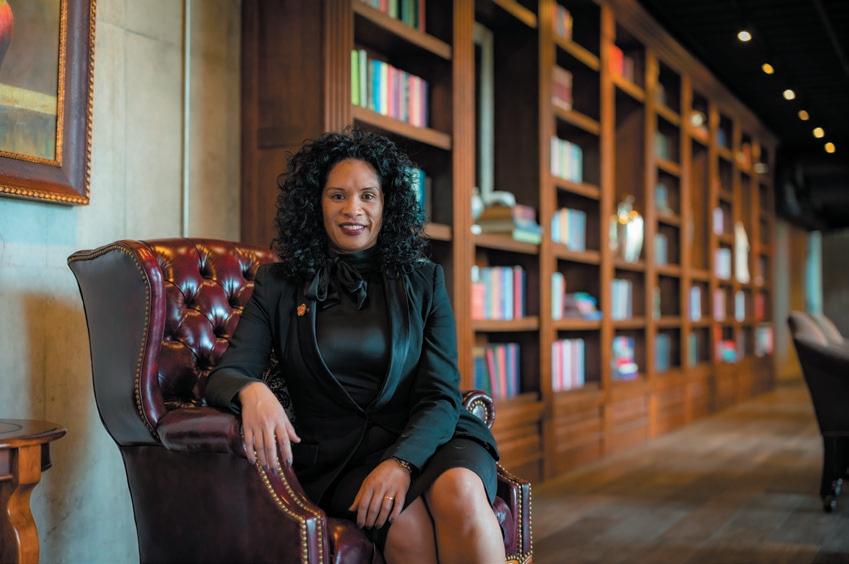
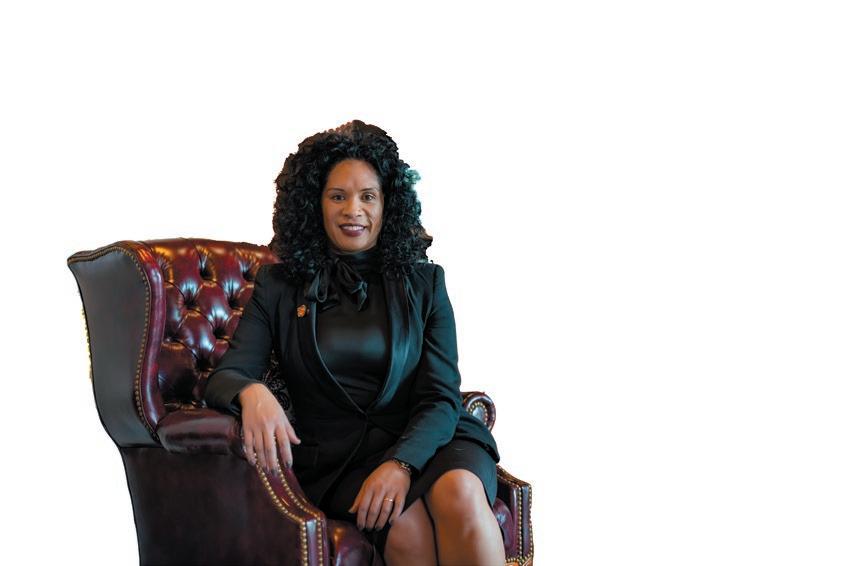
a critical part of our business strategy, not just our diversity, equity, and inclusion strategy. We are building economic inclusion by opening opportunity, increasing access, and investing our capital – human, social, and financial.”
The Zions Bank diversity, equity, and inclusion strategy is built on five main pillars, combining both internal efforts and external, community-based work.
First is a Diversity, Equity, and Inclusion Council, made up of representatives from each of the bank’s lines of business. Next are Employee Business Forums or Resource Groups. These are employee-led, executive-sponsored groups that represent historically marginalized groups with the goal of creating micro-circles of trust within the organization.
businesses such as woman-owned small businesses or Veteran-owned small businesses.
“We can’t say we are doing this work if we aren’t playing our role as a bank to open up access to capital for groups that have been denied capital that was rightfully theirs,” Panoke said.
The final pillar of the Zions Bank diversity, equity, and inclusion strategy is Community Giving. For example, Zions Bank sponsored a report investigating the reasons why Utah consistently ranks 50th in the nation when it comes to women’s equality and in June 2023, they introduced A Bolder Way Forward, a plan to address issues the report uncovered in education, corporate culture, and political representation.
The next pillar is Regional Inclusion Champions
Zions Bank has eight regions, and issues of equity, diversity, and inclusion can look and feel a little different in each of them, Panoke said. These champions, who also serve as part of the regional executive committee, are committed to understanding the local culture and addressing localized needs.
From there, Zions Banks’ equity, diversity, and inclusion efforts turn outwards, starting with Credit Access Products
“This is where economic inclusion comes into play,” Panoke said. “Do we have products and services that are closing the racial wealth gap and other wealth gaps?”
Efforts under this pillar include the Small Business Banking Diversity Program, a special purpose lending program targeting special purpose
Each of these pillars represents critical and important work, Panoke said, but it can’t be done in a vacuum. To succeed, the strategy needs partners and champions both inside and outside the company.
“The more people we bring into the solution, that’s diversity, equity and inclusion,” she said.
Within companies, bringing the highest levels of leadership to the table and into the solution is a critical first step. Panoke credits Zions Bank President and CEO, Scott Anderson, with setting a tone and company culture that prioritizes equity, diversity, and inclusion. Thanks in large part to his example, Panoke said, Utah is now in a unique position to leverage the power of a majority group – white men – to help empower minority groups in the state.
For example, Utah is the first state where a majority white-owned bank has been converted to a minority depository institution, with the purchase of Holladay Bank and Trust and its transition to Redemption Bank. The acquisition was led by a Black investment group, Redemption Holding Company, that
includes Dr. Bernice A. King, daughter of Dr. Martin Luther King, Jr., as well as former White House policy advisor and Small Business Administration Regional Administrator, Ashley D. Bell, and former NFL player and investor, Dhani Jones.
“It’s all about tweaking the power structures within organizations, companies, and communities,” Panoke said.
More broadly, the culture within an organization drives the behavior within that same organization, and companies need a corporate culture that aligns with their community culture in order to succeed. Leaders need to socialize equity, diversity, and inclusion work – and show that anyone can and should be a part of it.
“Customers have a need to see themselves in your big picture and not every company gets that yet, but they will because it absolutely impacts your bottom line,” Panoke said. “Consumers are doing more research in terms of their purchasing power. If I’m going to bank with you, I don’t just want to know, do you have good banking services? I want to know, are you investing in my community?”
Empathetic leadership also impacts productivity, satisfaction, and loyalty for the employees companies have – and plays a key role in helping companies attract the employees they want. Ultimately, Panoke said, human capital is the most important asset any organization has.
“Diversity, equity, and inclusion is the people part of the equation,” Panoke said. “If you take the people out of your organization, what’s left?” ■
We caught up with Katie Hoffman-Abby, Assistant Dean for Business Career Success and Corporate Outreach, to chat about why students are prioritizing strong equity, diversity, and inclusion cultures in their job searches, and what companies can do to attract EDI-focused employees.
Q: Why are students interested in working for companies with strong EDI policies and cultures?
A: When you look at the current demographic – Millennials and Gen Z – they have a strong set of values that are wrapped around equity, diversity, inclusion, and belonging. So, for their careers, they want to work for companies that have policies and programs and cultures that align with those values. They are inciting a lot of change because, to hire them, companies need to have a strong equity, diversity, and inclusion plan in place.
Q: What skills do students need to succeed in EDI-focused corporate cultures, and how is the Eccles School preparing them with those skills?
A: These are emotionally charged issues in many instances, so I think the number one skill students need is to control their emotions and engage in civil discourse.
Other skills students and alums need are to be observant, and to know that not everyone is as evolved as everyone else, so they need to be prepared to call out offensive behavior and have a conversation about it. But we also remind students to read the room and measure the audience, so they aren’t putting themselves in a place of danger.
Q: What do you look for in corporate partners and companies that demonstrates a commitment to EDI?
A: I like to press for specific examples of not just how they are going to hire for diversity, but how they are going to retain diversity. Companies need a plan to create a welcoming, inclusive environment where people belong and can come to work as their full, authentic selves.
Q: Any final thoughts?
A: I just want to remind students and alums that we are here to help. You don’t have to figure this out on your own. And it’s important for everyone who can, to play a part in making things better for others.
“If you take the people out of your organization, what’s left?”
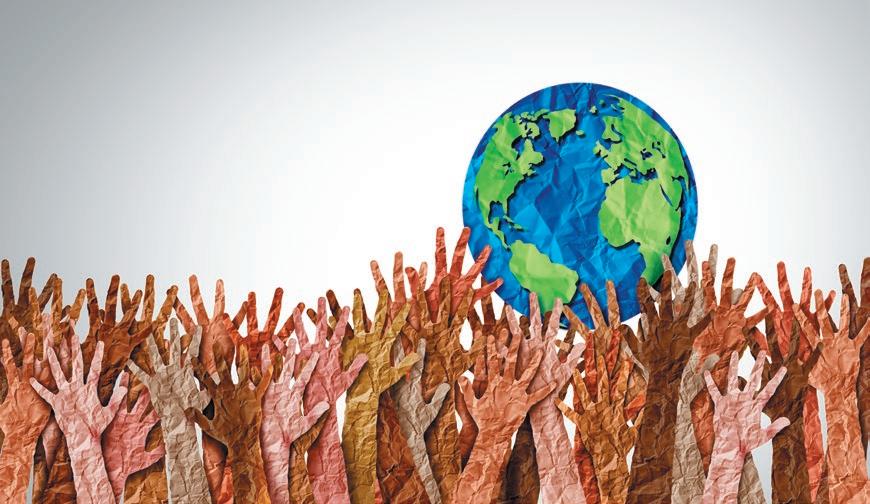
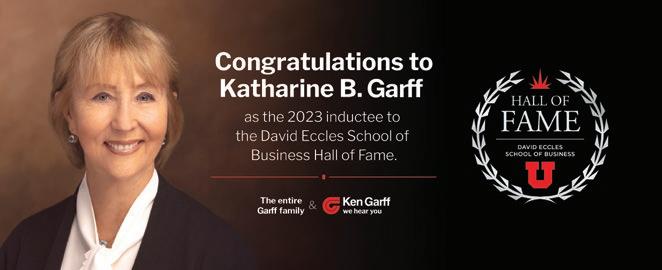
Tune in to Season 5 of the Eccles Business Buzz podcast to hear how the Eccles Community is working to bring empathy, equity, diversity, and inclusion to their workplaces and beyond.
Tune in at eccles.link/businessbuzz
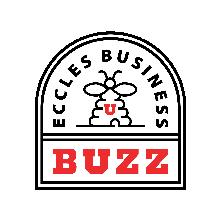
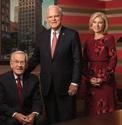

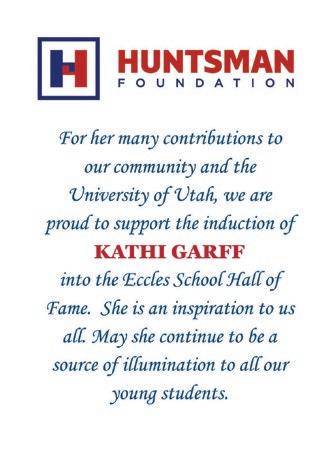





assam Salem was raised in a family that embodied global empathetic citizenship, and it’s a principle he has carried into his own family and work.
Bassam family that embodied citizenship, a principle he carried into his own and work.
Born the oldest of three children in Cairo, Egypt, Salem also spent time living in England and France before his parents moved the family to the United States in search of better opportunity. They landed in Salt Lake City, drawn here in large part by the University of Utah.
Following a lifelong passion for computers and technology – fostered by his computer engineer mother – Salem earned several computer science degrees from the U, as well as graduating with an MBA from the David Eccles School of Business in 1999. But as he entered the workforce, he discovered that not everyone had the same sense of empathetic global citizenship as him. After many rejections while using the name “Bassam Salem” on resumés and applications, Salem realized hiring companies were judging him based on his name and not his credentials. When he changed the name on his resumé to “Mark Salem,” the result was completely different.
of children in Cairo, Egypt, Salem moved the family to the United of better opportunity. They landed in Lake in large part by the University a lifelong computers and – fostered mother – Salem earned several science degrees from well as with an MBA from the David Eccles School 1999. he entered he that sense of empathetic global him. rejections while the “Bassam Salem” and applications, Salem realized companies were judging him based on and not credentials. When he changed the name on resumé Salem,” the result was completely different.
“I had pretty good education, and pretty good background, and pretty good grades, but when I put my real Egyptian name, an Arabic name, on applications, I would maybe hear from one or two out of 10 places I applied,” Salem said. “When I put Mark on applications, I would get eight interviews out of 10 and that really hurt.”
had pretty good background, and pretty grades, but when I put Egyptian name, an Arabic name, on applications, I maybe from two out 10 places I applied,” Salem said. “When I Mark on applications, I would get of 10 and that really
As much as it hurt, Salem to maintain a separate to get in his and didn’t stop the “Mark Salem” son was born in 2002.
As much as it hurt, Salem felt he had to maintain a separate identity to get ahead in his career, and he didn’t stop using the name “Mark Salem” until his first son was born in 2002.
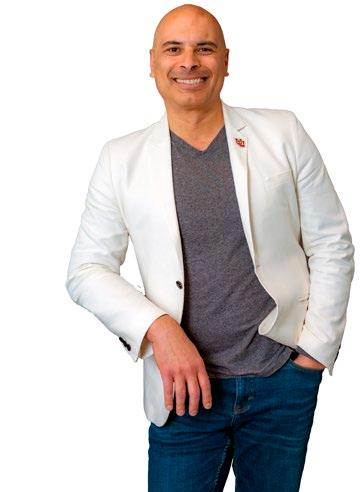
As taxing to maintain different identities, the shaped the Salem does business his own terms. to that the to address systemic bias is focus on
As taxing as it was to maintain two different identities, the experience ultimately shaped the way Salem does business – on his own terms. Salem came to believe that the best way to address systemic bias is to focus on
whether people are internally good people or not, rather than focusing on external factors outside their control. As he unified his two identities and presented himself as the same person at work and at home, Salem also embraced a mission to create more equitable opportunities in the business world.
In 2016, Salem founded AtlasRTX, a digital assistant company that was acquired by NICE in 2022. Salem now serves as General Manager of the Business Unit, and he has made equity, diversity, inclusion, and empathy the foundation of everything his team does. At the heart of these efforts is the Culture Committee, a group of four or five employees who represent the inclusive culture of the company. This group meets with job candidates before the hiring manager to determine whether the applicant has what Salem calls “The 4 H’s: Happy, Humble, Hungry, and Horsepower.”
Candidates like the Culture Committee approach because it shows the company is looking beyond their resumé, Salem said, and the company likes it because it helps answer what Bassam says is the most important question: Is this a good, empathetic person?
“You can’t have a bad employee if you hire a good person,” Salem said. “If you hire a good human, they just do the right thing. If you hire a good human, then you attract good clients. You can’t have a bad business if you just stick with good people.”
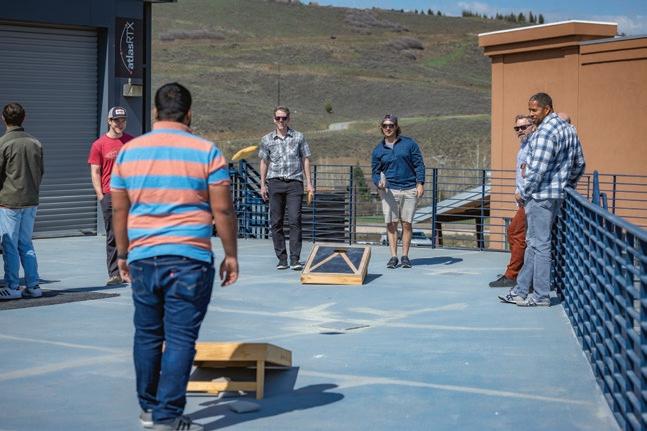
Focusing on the goodness in people helps avoid judging them in a biased way, Salem said, based on their name, for example, or their ethnicity. A diverse hiring committee should also be part of any effort to foster equity, diversity, and inclusion in the workplace. And finally, Salem said, tolerance is non-negotiable. Put together, these principles signal a safe, empathetic environment for both existing and prospective employees.
Despite his own experience with discrimination based on external factors outside his control, Salem feels a lot of hope for the future of equity, diversity, and inclusion, especially as technology makes us more connected than ever.
“I am so excited about the fact that technology is giving opportunity to people in places who otherwise would not be able to get that opportunity,” Salem said. “My parents had to come to the United States because if we wanted to have that opportunity we had to be physically here, and I think that is being exported. We can hopefully equalize more around the world.”
Salem and his family, including his wife, Ana, are also working to pay it forward and educate a new generation so they can also help build more equitable systems and workplaces.
“I think I am appreciating more and more how much earlier we need to start making a difference with equity, diversity, and inclusion,” Salem said. “You can’t just tackle it with 40-, 50-, and 60-year-olds, you must tackle it with 5-, 15-, and 25-year-olds. You must create the equality back then to see the results and benefits.” ■
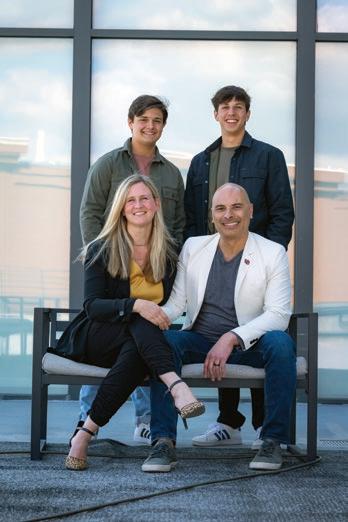
“You can’t have a bad employee if you hire a good person.”Photo by Melissa Majchrzak


She worked her way up through the company, eventually becoming the general manager of the Fidelity Investments Utah Region, where she managed 2,000 employees and millions of dollars in assets. When Liacopolous took the position in 2012, she was the first woman to serve in that role since the position was created in 1986.
She worked her way up through the company, eventually becoming the general manager of the Fidelity Investments Utah Region, where she managed 2,000 employees and millions of dollars in assets. When Liacopolous took the position in 2012, she was the first woman to serve in that role since the position was created in 1986.
Liacopolous credits many managers – mostly men – for seeing her talent and helping her progress in her career. But she also notes that the path was not easy, and she had to work harder than her male colleagues to get ahead.
Liacopolous credits many managers – mostly men – for seeing her talent and helping her progress in her career. But she also notes that the path was not easy, and she had to work harder than her male colleagues to get ahead.
For example, she recalled that many of her male colleagues, with the same salary, title, knowledge and skills as her, went out to lunch with their boss every day while she spent that time in her office, working. And it wasn’t just the time that she was working and they weren’t that caused the inequity, Liacopolous said. Those lunches with the boss were opportunities for social networking and informal mentoring that she didn’t have. That informal mentoring, over lunches and during Saturday golf games, means that male employees get more feedback that prepares them to move up the corporate ladder successfully. It can be as simple as a boss taking some time in the golf cart to say, “You know, you always come across as defensive in meetings. You should work on that.”
For example, she recalled that many of her male colleagues, with the same salary, title, knowledge and skills as her, went out to lunch with their boss every day while she spent that time in her office, working. And it wasn’t just the time that she was working and they weren’t that caused the inequity, Liacopolous said. Those lunches with the boss were opportunities for social networking and informal mentoring that she didn’t have. That informal mentoring, over lunches and during Saturday golf games, means that male employees get more feedback that prepares them to move up the corporate ladder successfully. It can be as simple as a boss taking some time in the golf cart to say, “You know, you always come across as defensive in meetings. You should work on that.”

Kris Liacopolous grew up in a Greek immigrant family where she saw lots of people in her community working hard. One thing she didn’t see much of though, was professional women.
“You didn’t see a lot of women really even working,” Liacopolous said, “and certainly not in roles of note.”
ris Liacopolous grew up in a Greek immigrant family where she saw lots of people in her community working hard. One thing she didn’t see much of though, was professional women. “You didn’t see a lot of women really even working,” Liacopolous said, “and certainly not in roles of note.”
Most of the professional women she saw were either teachers or nurses, but neither of those professions interested Liacopolous. She was focused on a job that could pay her a good salary and give her opportunities for growth and advancement. After bouncing around between different degrees and colleges, Liacopolous graduated from the David Eccles School of Business with a Masters of Human Resource Management, and joined Fidelity Investments as a licensed brokerage representative.
Most of the professional women she saw were either teachers or nurses, but neither of those professions interested Liacopolous. She was focused on a job that could pay her a good salary and give her opportunities for growth and advancement. After bouncing around between different degrees and colleges, Liacopolous graduated from the David Eccles School of Business with a Masters of Human Resource Management, and joined Fidelity Investments as a licensed brokerage representative.
Women, on the other hand, usually have family and community obligations outside of the workplace that take their time and mean they are often left out of these opportunities for guidance and mentorship. And without that informal feedback early in their careers, they have to work even harder when they do reach higher levels of management.
Women, on the other hand, usually have family and community obligations outside of the workplace that take their time and mean they are often left out of these opportunities for guidance and mentorship. And without that informal feedback early in their careers, they have to work even harder when they do reach higher levels of management.
“There is the work and the skills, and then there are all the other things that shape success in a company or industry,” Liacopolous said. “If nobody is telling you that, nobody is giving you the kind of feedback that men get, you may reach higher levels because you worked your butt off, but you have these detractors because no one told you these things earlier.”
“There is the work and the skills, and then there are all the other things that shape success in a company or industry,” Liacopolous said. “If nobody is telling you that, nobody is giving you the kind of feedback that men get, you may reach these higher levels because you worked your butt off, but you have these detractors because no one told you these things earlier.”
Those detractors – maybe your demeanor in meetings or the fact that your desk is always messy – allow people to discount your skills and abilities more easily, especially in higher levels of management. These detractors also mean that when women make mistakes in the
Those detractors – maybe your demeanor in meetings or the fact that your desk is always messy – allow people to discount your skills and abilities more easily, especially in higher levels of management. These detractors also mean that when women make mistakes in the
workplace, those mistakes are more heavily scrutinized than the same mistakes made by men.
workplace, those mistakes are more heavily scrutinized than the same mistakes made by men.
“When you’re hiring more of the same, you’re not taking a risk. When you hire someone who is different, you’re taking a risk and you magnify them,” Liacopolous said. “When you’re different, we put you under the looking glass and we are already sensitized that you might not do well.”
“When you’re hiring more of the same, you’re not taking a risk. When you hire someone who is different, you’re taking a risk and you magnify them,” Liacopolous said. “When you’re different, we put you under the looking glass and we are already sensitized that you might not do well.”
This phenomenon is borne out in research recently conducted at the Eccles School by Sara Malik, Assistant Professor of Accounting, Tim Liu, Assistant Professor of Finance, and Jordan Schoenfeld, Associate Professor of Accounting. In a recently published paper, they were able to show that in instances where something goes wrong at a company , the consequences are disproportionately negative for women, even when there is no evidence that the woman was at fault.
This phenomenon is borne out in research recently conducted at the Eccles School by Sara Malik, Assistant Professor of Accounting, Tim Liu, Assistant Professor of Finance, and Jordan Schoenfeld, Associate Professor of Accounting. In a recently published paper, they were able to show that in instances where something goes wrong at a company , the consequences are disproportionately negative for women, even when there is no evidence that the woman was at fault.
The paper focuses on boards of directors of companies that had a financial restatement event, meaning that the company released financial information that was inaccurate, and had to correct it with a financial restatement.
The paper focuses on boards of directors of companies that had a financial restatement event, meaning that the company released financial information that was inaccurate, and had to correct it with a financial restatement.
Because accurate financial reporting is the responsibility of the entire board, the consequences for financial restatements should be gender agnostic, Liu said. But the research found that after a financial restatement, women leave boards at a rate that is 13% higher than men in the same circumstance.
Because accurate financial reporting is the responsibility of the entire board, the consequences for financial restatements should be gender agnostic, Liu said. But the research found that after a financial restatement, women leave boards at a rate that is 13% higher than men in the same circumstance.
The research also found that women are even more likely to leave a board after a financial restatement event if the chair of the board is a man, and that women who leave a board are more likely to be replaced by a man than another woman.
The research also found that women are even more likely to leave a board after a financial restatement event if the chair of the board is a man, and that women who leave a board are more likely to be replaced by a man than another woman.
In their research, Malik, Liu, and Schoenfeld worked to control for non-gender-related reasons that women might leave boards in higher percentages than men after a financial restatement. For example, were women leaving for better opportunities at better companies? The answer turned out to be no. In fact, after leaving a board following a financial restatement, women have fewer board appointments than men in the same position for a period of three years.
In their research, Malik, Liu, and Schoenfeld worked to control for non-gender-related reasons that women might leave boards in higher percentages than men after a financial restatement. For example, were women leaving for better opportunities at better companies? The answer turned out to be no. In fact, after leaving a board following a financial restatement, women have fewer board appointments than men in the same position for a period of three years.
“We are becoming more human at work, and humans are whole humans. Empathy means we recognize that, and we make space for that.”
“It’s hard to identify the mechanisms that cause people to leave, but we’re left with gender as the one plausible explanation,” Schoenfeld said.
Understanding why women suffer disproportionately negative consequences after corporate adversity is key to the larger discussion of improving gender equity in the workplace, Malik said.
“The reason why it’s important is that there is a lot of discussion about having more women in leadership roles,” Malik said. “There is an argument to be made that everyone should get their chance at the top. But it’s not enough for women to get there, they have to stay there. What makes our setting interesting is that these are women who are at the top of their game and this phenomenon still exists for them.”
One way to avoid some of the inequality pitfalls later in your career, is to advocate for yourself more fiercely at the beginning of your career, Liacopolous said.
For example, a woman shouldn’t accept a lower salary offer than a male candidate with the same skills and credentials received for the same position. Because, Liacopolous said, it isn’t just $10,000 less to start. It means that when everyone gets a raise equal to 5% of their salary, that woman gets less. It means when that woman
is negotiating her salary for a new position, her starting point is lower.
“It follows you and there is very little you can do to make up that difference,” Liacopolous said. That lower salary offer also tells you a lot about what a company thinks of you and how they value you, Liacopolous said. Women entering the workforce need to understand the kind of company they want to work for, and they need to be prepared to ask for the kind of changes they want to see.
“I love the changes that Millennials have brought to the workplace, and I think they’ll continue,” Liacopolous said. “There is much more desire to understand each other’s experience.”
Changing cultures of sexism in the workplace also takes empathy, Liacopolous said. Empathy helps us understand each other better and gives us tools to help other people succeed through challenges. It used to be a weakness, but now empathy is key to better workplaces for everyone.
“Why can’t we have a world where people love their work for what it gives them?” Liacopolous said. “We are becoming more human at work, and humans are whole humans. Empathy means we recognize that, and we make space for that.” ■
“One way to avoid some of the inequality pitfalls later in your career, is to advocate for yourself more ��ercely at the beginning of your career.”
Recognition software and services that help people thrive.
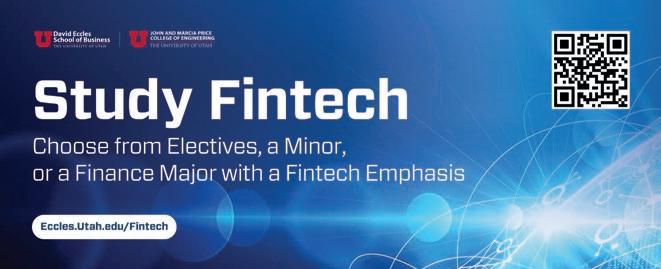
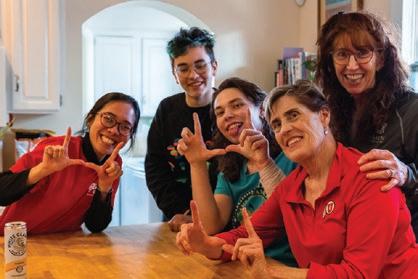

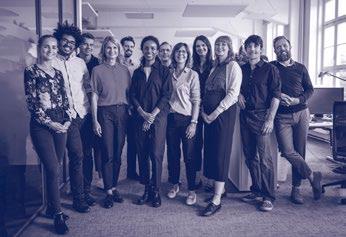
 by Frances Johnson
by Frances Johnson
There are all kinds of diversity, and people are interested in different types of diversity for varied, and often very personal, reasons. For Shamby Polychronis, Ph.D., it was growing up close to a cousin with multiple disabilities that sparked her own interest in disability advocacy and neurodiversity.
But the more she learned about neurodiversity – a term used to describe a range of different abilities, including autism, ADHD, and mental health –
the more she realized she had been looking at it all wrong. Awareness is not enough to create inclusion, she said, and sometimes stopping at just awareness can be harmful and offensive. For Polychronis, the aha moment was shifting her perspective from “normalizing” disability to seeing it as diversity.
“It changed my belief system, listening to the neurodiverse community,” said Polychronis, who now works as an Assistant Professor (Clinical) in the Special Education program at the University of Utah. “It’s all about creating spaces that are ethical and inclusive rather than forcing them to fit. I’m a big believer in allyship and creating inclusive spaces where people feel like they belong.”
It starts with examining the systems and processes that underpin many companies and businesses. There is not a “normal” way our brains should work, Polychronis said, but many systems and processes are designed as if everyone operates the same way. Take the traditional interview process, for example.
“We have a kind of antiquated model, and when we operate on that antiquated model, we are going to cut off a pool of candidates that could do a really great job because they didn’t make eye contact or have a strong handshake,” Polychronis said.

Even the standard questions hiring managers ask in interviews, like “Where do you want to be in five years?” can prevent them from really getting to know a candidate and making a more informed decision about who would be a good fit. Instead, Polychronis recommends asking questions like, “What do you enjoy doing?”, “What can you bring to the office?”, and “What might be difficult for you?” These more nuanced questions can help uncover skills a hiring manager wasn’t expecting or can open a conversation about simple workplace accommodations that can be put in place from the beginning.
“When businesses are looking for ways to welcome their employees, they need to know those employees,” Polychronis said. That includes understanding that not everyone will react to the same things in the same way, she added.
Once a company hires a neurodiverse employee, they need to address the environment so that employee will feel safe and welcome, and stay with the company.
“If we have spaces that really don’t honor and cherish diversity, we need to squash that,” Polychronis said.
That includes rooting out cultures of gossip and giving diverse employees safe space and time to share their own experiences, feelings, and feedback. That ongoing feedback loop can help managers understand and address small issues before they become big problems. Companies should also keep intersectionality in mind as they build company cultures and create feedback loops.

“A lot of people have a lot of identities that blend into who they really are,” Polychronis said.
Creating an equitable, diverse and inclusive workplace is also a chance for companies to re-evaluate their needs and how to fill them. When an employee leaves, for example, don’t just replace them with an exact replica, Polychronis said. Maybe that job gets divided between several employees based on their specific skills and preferences. Or maybe several positions get combined into one and assigned to a person with the skills to do it all. When employees on the autism spectrum are in a job properly matched with their skills, Polychronis said, they do 140% more work than their neurotypical colleagues.
“If we have spaces that really don’t honor and cherish diversity, we need to squash that .”
“If people like their jobs, folks on the spectrum are amazingly productive employees,” she said. “If we do the legwork upfront, that person will be incredibly productive, and they tend to be very loyal. We spin our wheels because we don’t do the proper matching early.”
All of this is hard work, Polychronis acknowledges, and companies often cut corners when it comes to inclusive interviewing, onboarding, and mentorship. But, she said, “I think that hurts us in the long run.”
Good employees mean good outcomes for businesses of all kinds, but ignoring inclusive practices means good candidates are disqualified not based on their skills or their ability to do a job. Disqualifying those candidates early in the process also allows biases and misperceptions to go unchecked.
“When we are talking about the neurodiverse community, these misunderstandings are more common,” Polychronis said. “If we don’t challenge these norms, we can’t create a safe space that operates outside of the narrow box we’ve been thinking in. This is a population that wants nothing more than to prove they aren’t lesser.”
Ultimately, businesses that prioritize inclusivity and diversity will pay a short-term cost – in time and effort – for a long-term gain in employee productivity, loyalty, and better company performance. Companies can’t leave marginalized groups to solve issues of workplace inclusivity, Polychronis added. They need to listen and learn and then put systemic changes into practice.

“This is a population that values work and has a strong work ethic. But their value system is really different. Their entire identity isn’t built around their jobs,” Polychronis said. “But if we don’t ask questions, we don’t know how things have changed or are changing. And the truth is, these are often very workable barriers. There is such an untapped workforce out there. What a waste of a great resource and really great people.” ■
Noise canceling headphones. What might be a small noise to one person could be very problematic for someone else. Noise canceling headphones can bring quietness to a noisy work environment to improve focus and comfort.
Written, concise instructions. Reducing uncertainty can help neurodiverse employees to accomplish their work goals efficiently. And it’s not a bad practice for neurotypical people either!
Uninterrupted work time. Many autistic people report that, while shifting between different tasks can be difficult, they can get “in the zone” on a task once they get going. A constantly shifting work schedule or lots of interruptions can interfere with their potential, but an interruption-free work environment helps ensure productivity and a healthy workplace.
Extra time. Everyone works at their own pace and neurodivergent employees are no different. Tight deadlines and rushing the creative process can undermine idea generation and innovation.
Closed captioning and recorded meetings. Studies show that information presented to your brain in written form, not just orally, improves processing and memory. Something as simple as software that enables speech to text during meetings can make a big difference.
Desk placement. If someone works better by a window, put them there! If someone else is distracted by the television monitors in your office, arrange their desk facing away from them. Also pay attention to traffic patterns in your office and keep people who are easily distracted or interrupted out of high traffic areas.
Talk and listen. Ask employees how they prefer to communicate. For example, if an employee is uncomfortable with their camera on during a remote meeting, don’t require it. If they need extra time to process complex instructions, send an email before you talk face-to-face.
riel Malan noticed early in her professional career that LGBTQ+ employees faced unique barriers and difficulties in the workplace, especially when it came to making their voices and experiences heard.
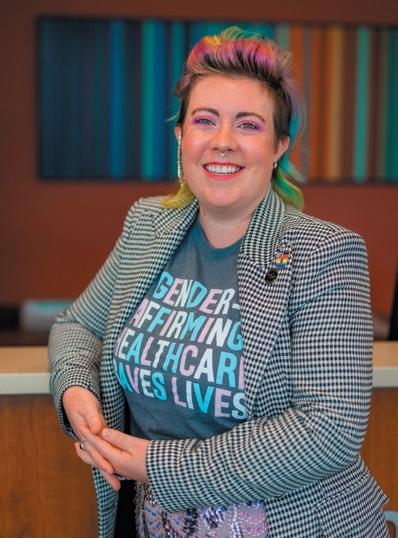
A graduate of the Master of Healthcare Administration program at the David Eccles School of Business, Malan herself came out as queer in 2016. She worked as an intern for the University of Utah health system, researching best practices in transgender health and, when the university received a grant in 2019 to fund a Program Director role for the Transgender Health Program, Malan was appointed to the position.
In this role, Malan has continued her work to amplify the voices of underrepresented groups within the workplace, particularly those in the LGBTQ+ community.
Research conducted by the Williams Institute in 2021 found that nearly one in four LGBTQ+ workers experience employment discrimination, while 67% heard negative comments about LGBTQ+ people in the workplace and 25% were not out to any of their coworkers.
This research backs up the lived experience of many LGBTQ+ people in the workplace, Malan said. The biggest hurdle many LGBTQ+ employees face is finding a workplace where they feel safe to express themselves fully and authentically.
“The biggest thing that has gotten in my way, is my self-expression,” Malan said, “The way that I dress, express myself, speak, the topics that I talk about that are related to my lived experience, those are the things that tend to be harder to navigate in the workplace.”
Negative feedback or responses from straight, cis-gendered co-workers are often what makes authentic self-expression so difficult. For example, according to the Human Rights Campaign, 80% of non-queer people agree that LGBTQ+ people should not have to hide who they are at work, but 59% of those same people say talking about sexual orientation and gender identity in the workplace is unprofessional.
Some LBGTQ+ employees turn to “code switching” – or behaving a different way at work than they do in their personal lives – as a way to deal with the double standard, but that can be exhausting and create a lot of anxiety for LGBTQ+ employees, Malan said.
“The result of having to conform, of having to police your own self-expression, to be listened to and to be perceived as competent, absolutely results in burnout,” she said. “Because when you are a marginalized person in the workplace, especially within the field of business where these ideas of professionalism are heavily reinforced, you overcompensate.”
Reframing our ideas of professionalism is a good place to start in addressing inequality in the workplace and improving the workplace experience for LGBTQ+ employees.
Professionalism is a social system of rules created to enforce conformity that has historically harmed people of color, LGBTQ+ people, women, and others, Malan said. These rules have been reinforced in many ways, from gendered office dress codes to rules about hair and grooming that discriminate against people of color, and more. Even as a student, Malan came to class with brightly colored hair only to receive comments like, “I hope that’s your spring break hair.”
When organizations fail to address their embedded systemic bias, these kinds of microaggressions continue happening, making it harder for LGBTQ+ people to feel safe at work. A feeling of safety at work is closely linked with employee productivity, which means that companies with unresolved systemic bias also pay for it in their bottom line.
On the other hand, companies that work to build inclusive, welcoming and safe environments – and especially those that promote LGBTQ+ and other minority employees to leadership roles – will attract and retain a more diverse workforce.
To succeed, however, those efforts have to be genuine. Malan warned against things like "Rainbow Washing,” when organizations use rainbow colors and imagery in advertising, apparel, landmarks, and more to show their support of LGBTQ+ equality without actually working to enact change. Organizations need to act intentionally, Malan said, and not hide behind a claim of neutrality.
“People are risk averse, and they are trying to claim neutrality,” Malan said, “and we all know it is not a neutral position to not say anything when communities of color, communities of gender and sexual minorities, are experiencing political violence. We hide behind a privilege.”
To implement true and authentic workplace changes, Malan suggested that companies start with climate surveys to understand how employees are feeling about the company, and to get information about sexual orientation, gender preference, demographics, and more that is useful when creating new inclusive initiatives and policies. Malan also recommends providing LGBTQ+ resources and safe spaces for community advocacy. These can include focus groups where LGBTQ+ employees can share their experiences and make suggestions for improvements. Finally, Malan said, allies are a major piece of the puzzle in moving LGBTQ+ friendly initiatives forward.
When you are a marginalized person in the workplace, especially within the field of business where these ideas of professionalism are heavily reinforced, you overcompensate.
“This is hard for people who don’t have a marginalized background to see,” Malan said. “Research has shown that white male allies feel like they are being pushed out of the conversation. The bench that white cis men have been sitting on has enough room for everybody and we are not pushing you off, you get to be there, too. We do want you there, we do want your voice, and we need your allyship, because without you, things won’t move forward. There is enough room for everybody. We are reminding people that they have a role and a space within equity, diversity, and inclusion work.” ■
There is enough room for everybody. We are reminding people that they have a role and a space within equity, diversity, and inclusion work.
In a Spring 2022 survey of graduating seniors, 25% of respondents indicated they had gone hungry at least once in the previous year due to lack of su cient financial means to buy food.







In a Pinch was created to provide access to free basic essentials, including non-perishable food and personal hygiene products. Help us continue supporting Eccles students in need by donating and scanning the QR Code above.


Equity, diversity, and inclusion is a top strategic priority for the David Eccles School of Business.
The Spring 2024 Eccles Experience Magazine will dive deeper into efforts at the Eccles School to center and improve EDI but, in the meantime, here is a teaser of our new Equity, Diversity, and Inclusion Action Plan.
1
…is inclusive of a diverse variety of backgrounds, experiences, and perspectives.
…embraces rather than turns away from difficult, critical conversations. 2
…sees EDI as part of each individual’s and department’s role rather than in a silo. 3
The process of developing, implementing, and refining the EDI Action Plan is ongoing.
Identifying project leads, timelines, goals, and objectives; beginning to move forward with initiatives.
Sharing proposed initiatives; collecting input and buy-in from Dean’s Team, faculty and staff, and existing EDI committees.
All equity, diversity, and inclusion efforts at the Eccles School will align with efforts campus-wide.
FOSTER AN INCLUSIVE ENVIRONMENT
▶ Culture
▶ Student services
▶ Teaching and learning
▶ Engagement and community outreach





ENSURE EQUITABLE SYSTEMS
▶ Admissions
▶ Access and equity
▶ Promotions and hiring
BELONGING CLIMATE
1 2 3 4
COMMUNITY ENGAGEMENT
HEALTH EQUITY
5
Meeting with stakeholders throughout Eccles and the University to understand existing initiatives, impact, pain points, and perspectives.
Using information gathered during the listening phase to synthesize into a core set of issues with common understanding.
Drawing from identified problems to envision targeted initiatives backed by data and resources.
Internally, we are also developing working groups to address specific areas where equity, diversity, and inclusion can be most impactful and where it is the most needed.
HIRING TOOLKIT
ONBOARDING TOOLKIT
FUNCTIONAL AREA EDUCATION
DATA INTEGRITY/CONSISTENCY
TRANSPARENCY WEBPAGE
When the world shut down in March 2020, everyone went to the same place — home. Whether that home was near or, in a few cases, a relocation to a different state or country, it has had a major impact on real estate markets across the country.
The work-from-home shock has affected residential real estate everywhere, according to expert Andra Ghent. There is huge pressure on suburban home prices, and builders have not had a chance to develop new supply.
The commercial real estate market has also seen a shift as a result of the pandemic, but it’s important not to extrapolate too much from high-cost cities like New York and San Francisco, Ghent cautions. While remote work has not been great for commercial real estate owners, it hasn’t been quite as big of a shock in less expensive cities. Furthermore, excess office space tends to get absorbed over time. Cities with longer commute times and a higher share of workers in remote-capable occupations tend to have a higher demand for remote work.
Ghent is currently working on a project studying the return to work and its impact on office demand as companies make announcements calling employees
“Accessory dwelling units are a great solution for
back into the office. She believes that overall, the percentage of employers who remain 100% remote will be quite small.
Even as most workers return to the office, that workspace may not look the same, Ghent said. Being apart increased appreciation for the social aspect of working in person. People are craving more opportunities to connect with peers, and even meet potential partners and friends, in a way they took for granted before the pandemic. Older workers, however, are tending to prefer remote work. As a result, we can expect to see a rise in communal office designs, Ghent said, with an emphasis on collaborative spaces.
Ghent has immersed herself in the Utah real estate scene since joining the David Eccles School of Business in 2021. She currently serves on the Salt Lake City Planning Commission, lending her expertise to solve the unique issues caused by Utah’s exploding population. Topographic supply chain constraints and land use constraints imposed by Utah cities
make it difficult to build in the state, especially when it comes to residential real estate inventory.
Housing affordability is a huge issue both in Utah and across the country. While the pandemic had an impact, it is not the root cause, Ghent said. The long-term issue is that median renter wages have not increased in 40 years. Renters tend to come from the lower half of the income distribution, and while the costs of construction have gone up, families have not seen wages rising at the same rate. Ghent believes smaller homes could be a big part of the solution. In addition to legalizing missing middle housing, she advocates for allowing accessory dwelling units such as guest houses or mother-in-law apartments as a potential solution. “Accessory dwelling units are a great solution for aging adults or adult children with disabilities,” Ghent said. “Allowing them without restrictions like requiring owner-occupancy is a very family-friendly policy.” ■
Andra Ghent is a professor of finance at the Eccles School, where she also holds the Ivory-Boyer Chair in Real Estate and serves as the Academic Director of the Ivory-Boyer Real Estate Center. Her current research interests are real estate finance, financial intermediation, and urban economics.

aging adults or adult children with disabilities.
It’s no secret that prescription drug prices are skyrocketing. With consumers paying more for medications every month, Josh Feng set out to identify the key actors and forces driving outcomes in prescription drug markets.
“I use data and modeling to understand how actors and regulations interact to determine outcomes that affect consumers,” Feng said. “A clearer picture of the system can help policymakers craft better policies and regulations.”
A starting point for this line of research was showing that patients taking medication to manage chronic disease stick to the same brand drug at very high rates over time.
“If you randomly assign a patient to a drug, they’ll just continue taking it, even if there are cheaper substitutes,” Feng said. “It creates incentives for drug companies to increase prices and to develop slightly modified versions of existing drugs to stave off competition from generics.”
His subsequent work analyzed forces including the role of pharmacy benefit managers and how Medicare and Medicaid rules impact the commercial side of the market.
Feng also has a current project that looks at mergers within the pharmaceutical industry.
“We often tend to connect mergers to price increases,” he said, “but regulators like the Federal Trade Commission need more information on the types of mergers that lead to increased prices.”
Preliminary analysis suggests that regulators play a significant role in preventing mergers that lead to price increases.
Feng also has an interest in the broader innovation system. Part of his research looks at the behavior of innovators (inventors and entrepreneurs) and the implications for consumers and economic
growth. One particular project studies the relationship between innovators’ backgrounds and the demographics of the consumers they ultimately sell to.
“Innovators tend to create new products that are purchased by people similar to them,” he said. “Given that individuals from low-income backgrounds and women are several times less likely to participate in the innovation system, this likely means fewer new goods and services for individuals from those populations.”
Intellectual property law plays a huge role in the innovation system, and Feng has a particular interest in so-called “patent trolls”—entities whose business model is to buy patents and assert them.
“While we are seeing the incidence of this practice level off a bit, patent trolls took up three-quarters of the cases in U.S. District Courts in the 2010s,” Feng said. His work has found that patent applications that are not scrutinized carefully during examination are more likely to be scooped up by patent trolls, suggesting that trolls are profiting from legal grey areas rather than helping owners of high quality inventions enforce their patents. ■
Josh Feng is an assistant professor in the Department of Entrepreneurship and Strategy. He studies intellectual property, entrepreneurship, and the pharmaceutical industry. Specifically, he has studied drug pricing, pharmacy benefit managers, patent assertion entities and patent litigation, and demographic homophily between entrepreneurs and their customers.

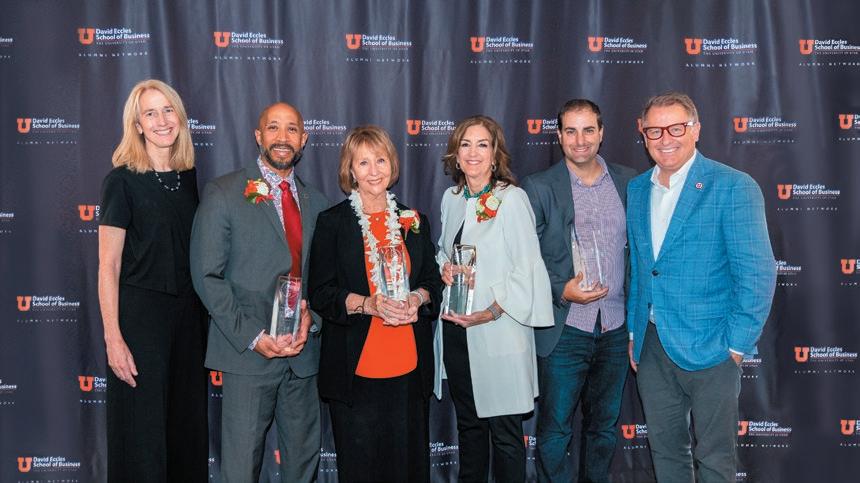
The Eccles School held the 37th annual Hall of Fame luncheon this spring, and celebrated Katharine B. Garff as the 2023 Hall of Fame Inductee.
Kathi is the Chair of Ken Garff Enterprises and Ken Garff Automotive, filling the positions long held by her late husband, Robert H. Garff. She is also director of the Robert H. and Katharine B. Garff Foundation, and Chair of the Success in Education Foundation. Kathi also serves as a
member of the Eccles Advisory Board. She is passionate about education and has been a great ally of the Eccles School and advocate for current and future students.
The 2023 Hall of Fame event also recognized: James Jackson III, Vice President of the Supplier Diversity Program at Zions Bancorporation and Founder and Managing Partner of the Black Success Center, with the Rising Star Award; Anne Taylor, Independent Director and outgoing Chair of the Eccles Advisory Board, with the Alumni Service Award; and Chad Anselmo, Co-Founder and Executive Director of Corvia, with the Distinguished Entrepreneur Award
The David Eccles School of Business Class of 2023 celebrated their graduation on May 4 with a ceremony at the Jon M. Huntsman Center. The total number of Eccles graduates this year was 1,585 including 876 undergraduates and 719 graduate students. There were 909 undergraduate degrees earned and 750 graduate degrees earned. Four Ph.D. candidates were also hooded during the ceremony.
“You have all worked hard and learned so much during your time at the Eccles School, and I know you are well-prepared to make a positive impact, whatever career and community you choose,” Dean Rachel Hayes said. “If you ever need a reminder of your ability to do great things, just think back on everything you accomplished here. It is only the beginning!”
The David Eccles School of Business Executive Education program has been ranked in the Top 5 for open enrollment executive education programs in the nation. The University of Utah was also the only program in the west to rank in the top 25 for student satisfaction.
Executive Education offers short, high-impact, non-degree programs that connect students to premier faculty members from the Eccles School’s top-ranked MBA programs through open-enrollment courses, certificates, or custom programs. Learn more at eccles.utah.edu/programs.
In February, the David Eccles School of Business hosted its first-ever Sales Innovation Summit, presented by the Alan and Jeanne Hall Foundation. More than 250 students from colleges and universities around the state attended. The event wrapped up with a job fair. Save the date for our 2024 summit, Friday. February 9.
In January 2023, the University of Utah presented the Fintech Xchange in partnership with the Stena Foundation. The event served as the official launch of the Stena Center for Financial Technology, a collaboration between the U and Stena founders Steve and Jana Smith. Steve Smith is also an alum of the Eccles School. The Stena Center for Financial Technology is a joint effort between the David Eccles School of Business, the John and Marcia Price College of Engineering, the S.J. Quinney College of Law, and the University President’s Office.
The Sorenson Impact Center at the David Eccles School of Business held their annual summit from February 26 through March 1 at Utah’s Snowbird Ski Resort. The Sorenson Impact Summit is an annual curated convening of the top changemakers in global impact investing where transformative ideas meet actionable opportunities in a unique, breathtaking, all-inclusive environment.
This year’s event featured Zita Cobb, renowned social impact entrepreneur; Van Jones, widely known U.S. media personality, entrepreneur, and change-maker; and, Stephen Gyllenhaal, impact filmmaker and producer. ■
Degree from Eccles:
Marketing BS '20
Current job title/position: Diversity, Equity, and Inclusion Specialist at Extra Space Storage
What is your favorite memory of the David Eccles School of Business?
Undoubtedly my favorite memory is my involvement with the Women in Business Club (WIB). The events and discussions that this club and the female student leaders were able to provide its participants is something I hold near and dear to my heart. In addition, my involvement in WIB allowed me to forge meaningful friendships with like-minded women who share my passion for gender equality.
What program, person, or experience made you feel welcome and included during your time at the Eccles School?
The Office for Student Inclusion allowed me to shed all the labels and stereotypes often associated with being a minority first-generation student, and created a supportive environment for the diverse scholars of the Eccles School.
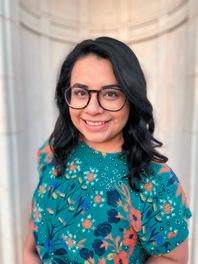
In your experience, how do equity, diversity, and inclusion contribute to a company's success?
Any company that truly values its employees and business should pay attention to the importance of the EDI business case. For example, having a diverse workforce brings a range of skills, networks, and suppliers to a company. Moreover, prioritizing an equity-first mindset creates an environment where employees feel included and valued, strengthening the company's culture and increasing employee retention.
If you could give one piece of advice to your student self, what would it be?
Join the conversation and ask all the questions. Be curious and speak your mind.
How do you strive to develop empathy and practice inclusion in your own life?
I strive to stay open and curious about other people's lived experiences. I remind myself to slow down, avoid making assumptions, and remain present. I actively educate myself, use inclusive language, and try my best to listen attentively to everyone I engage with.
Degree from Eccles: MBA, MHA ‘12
Current job title/position: President and CEO, American United Credit Union
What is your favorite memory of the David Eccles School of Business?
I enjoyed the group work during case studies, simulations, and projects, and the (mostly friendly) competition they engendered. The opportunity to work with and learn from different people in my classes was invaluable.
What program, person or experience made you feel welcome and included during your time at the Eccles School?
I had tremendous professors who also served as mentors – Debbie Scammon, Bonita Austin, and Kate Cañas, to name just a few. They were warm and welcoming but still pushed me to think bigger and be better.
In your experience, how do equity, diversity, and inclusion contribute to a company’s success?
When people feel heard and understood, they tend to be more engaged, which leads to enhanced productivity and creativity. We are moving from counting numbers (diversity) to making those numbers count (inclusion).
If you could give one piece of advice to your student self, what would it be?
It’s important to do well in your coursework but don’t miss out on the relationships and life lessons that occur outside of the classroom. Zoom out – view the entire experience as part of your education.
How do you strive to develop empathy and practice inclusion in your own life?
I strive to educate myself, be mindful of my biases, and practice active listening. I enjoy spending time with people who are different from me – different upbringings, careers, ideologies, perspectives, and interests. I’m hopeful this helps broaden my perspective and become more engaging and inclusive.
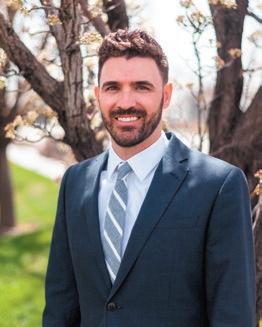
Degree from Eccles: Honors Marketing ‘20
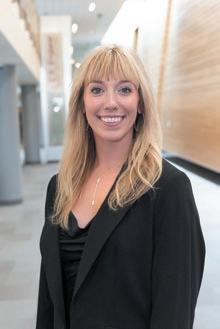
Current job title/position: Assistant Director of Development, David Eccles School of Business
What is your favorite memory of the David Eccles School of Business?
My favorite and most meaningful memories were made when I spent time abroad with Eccles Global. Nothing teaches you more than immersing yourself in a new place/culture, meeting new people, and collecting experiences that broaden horizons and deepen your appreciation for the beautiful world in which we live.
What program, person or experience made you feel welcome and included during your time at the Eccles School?
The Business Scholars Program truly was my home away from home. It provided me with life-changing opportunities and exposure to professions, places, and philosophies that I had not yet considered. It also introduced me to people who would serve as friends and mentors not only while I was in school but long after.
In your experience, how do equity, diversity, and inclusion contribute to a company’s success?
There is intrinsic beauty and power when we exercise equity, diversity, and inclusion in our companies and communities. Through an open exchange of ideas and opinions, we foster spaces for creativity, innovation, and happiness. It is imperative that everyone feels that they have opportunities to succeed, grow, and positively impact the world around us.
If you could give one piece of advice to your student self, what would it be?
Life is not meant to be a sprint but rather a parade... Enjoy the ride of a lifetime!
How do you strive to develop empathy and practice inclusion in your own life?
I hope to lead each day with an open heart and to always serve as a source of happiness and light. As my Papa says, "What the world needs now is to become less of a 'me' society and rather a 'we' society." To do this, I feel that we must act with courage, passion, kindness and, most importantly, love, each and every day.
Degree from Eccles: Finance BS ‘07
Current job title/position: Founder & CFO, FundrPro, Executive Director, Bonneville Multifamily Capital
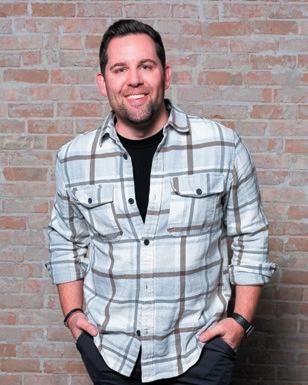
What is your favorite memory of the David Eccles School of Business?
Studying for my final exam in Business Strategy while on a plane heading to an MBA recruiting event at a Midwestern school. At my first meeting, I shook hands with Professor Jay Barney (the author of the textbook I was studying from). I am pleased to see he is now a professor at Eccles.
What program, person or experience made you feel welcome and included during your time at the Eccles School?
Buzz Welch was an adjunct professor in the finance program during my senior year. He taught me key principles of real estate finance and exposed me to concepts and strategies that I use to this day in my career as a real estate professional.
In your experience, how do equity, diversity, and inclusion contribute to a company’s success?
Diving deep into relationships and truly valuing people above process and product will cultivate love into the corporate culture. People are not static – they’re dynamically evolving. Their worries and passions ebb and flow. Making sure they are seen, heard, loved and empowered is a key to success in the performance, retention, recruitment and growth of any organization.
If you could give one piece of advice to your student self, what would it be?
Don’t be afraid to ask questions and make mistakes.
How do you strive to develop empathy and practice inclusion in your own life?
I put work into my emotional intelligence (EQ). Self-awareness and empathy are the two central pillars of EQ. After I complete a project, pitch a client, close a deal (or fail to), I analyze my actions to see what I could’ve done better – and sometimes I invite others to weigh in, too, to get their unique perspectives. I look for ways to draw a wide circle and bring everyone in.
Degree from Eccles: Management ‘20
Current job title/position: Director, Student Engagement and Belonging, David Eccles School of Business
What is your favorite memory of the David Eccles School of Business?
After connecting with a wonderful group of fellow students also searching for LGBTQIA+ community and resources at the Eccles School, we dove into the process of creating Out for Business, the Eccles School’s first student organization for LGBTQIA+ community members and allies. In our first year, we met nearly one hundred Eccles Community members and were able to begin addressing the needs we had seen.
What program, person or experience made you feel welcome and included during your time at the Eccles School?
My senior year leadership experiences in Eccles School student organizations and student employment positions played the most substantial role. My Out for Business co-founders and co-leaders and my staff managers/mentors were enormous sources of welcomeness and inclusion.

In your experience, how do equity, diversity, and inclusion contribute to a company’s success?
When an organization makes a legitimate commitment to EDI, these initiatives can have wide-ranging impacts that can positively benefit a for-profit organization’s bottom line. Strengthening community relationships and enhancing understanding of deep, complex social issues can also help organizations make progress towards their mission.
If you could give one piece of advice to your student self, what would it be?
Most issues, problems, stressors aren’t quite as large, intimidating, or intense as they seem. Generally, things work out, and it’s much healthier in the long term to go with the flow!
How do you strive to develop empathy and practice inclusion in your own life?
To me, developing empathy and practicing inclusion is more of a journey than a destination. In my every day life, I try to learn about the experiences and histories of a diverse group of individuals and communities, understand ever-evolving concepts and terminology, recognize and challenge my own socialized biases, and foster safe and strong relationships so those around me also feel comfortable to call me in or out.
Degree from Eccles: Executive MBA ’21
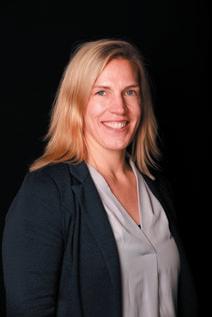
Current job title/position: Director, Reality Labs Strategy & Operations and Chief of Staff to the CTO at Meta (fka Facebook)
What is your favorite memory of the David Eccles School of Business?
The first week at Snowbird and meeting my classmates for the first time. The room was full of optimism, excitement for what we were all about to experience together and of course anxiety as most of us were returning to a classroom learning environment after many years away.
What program, person or experience made you feel welcome and included during your time at the Eccles School?
I was fortunate to be recognized as Utah Business 40 under 40 and received a handwritten note from Dean Randall and his staff congratulating me. The people here are what makes the University of Utah a special place.
In your experience, how do equity, diversity, and inclusion contribute to a company’s success?
I’ve had the opportunity to work in the technology industry for over 20 years and be involved with building amazing products during my time at Adobe, Vivint SmartHome and now at Meta but the pattern to success has always been to seek to create teams that represent the diversity of our customers.
If you could give one piece of advice to your student self, what would it be?
Enjoy the ride! No matter what you think your plan is there are certain things you can’t control. Make the most out of every experience!
How do you strive to develop empathy and practice inclusion in your own life?
This is an area of continued development for me and I work to improve by practicing three things: a growth mindset and education; seeking diverse perspectives; and using inclusive language.
Coming to college as a first-generation student can be an isolating experience, and it’s an experience Tara Hardison knows well. As the first person in her family to attend college she didn’t have parents, aunts, uncles, or even friends who could guide her or tell her what to expect, and that missing support made a big difference to what college was like for her.
“Not feeling like you are a member of a campus community really detracts from what you can give, and also what the community can give to you,” Hardison said.
After experiencing and observing first-hand what happens when learning and working environments are not inclusive, Hardison sought out work that would help close the inclusion gap – from academic advising to student engagement and assessment to preparing to defend a Ph.D. dissertation focused on college access. The culmination of all that work and research is Hardison’s current role as Assistant Dean for Student Affairs and Inclusion, where creating welcoming and empathetic spaces for students is her top priority.
After the murder of George Floyd in 2020, many people turned to colleges and universities to be problem-solvers and thought leaders, Hardison
said, but true equity, diversity, and inclusion work needs to run deeper than a single event. One of the first things she did in her new role was create a strategic plan that helps people understand what inclusion work is and why it matters.
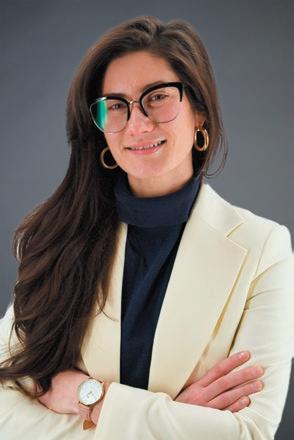
“How this gets done effectively is that we all believe it’s on us,” Hardison said.
One major focus of the plan is addressing basic needs among Eccles students. Many students report difficulty accessing basic needs such as food, housing, mental health resources, and financial assistance. All of this creates an inclusion gap that contributes to achievement gaps and wealth gaps later on.
“If these things aren’t happening, how can we expect anyone to come to class and engage?” Hardison said.
Addressing this and other inclusion issues isn’t just about funding college access, Hardison said. It’s also about learning how to talk about difficult issues with empathy – including being open when we might be struggling ourselves. It’s all part of building places where everyone can be their authentic selves.
“Inclusion is so important to me because of what it can do for communities,” Hardison said. “We have an opportunity to really make a difference.” ■
Inclusion is so important to me because of what it can do for communities.

ECCLES.UTAH.EDU

